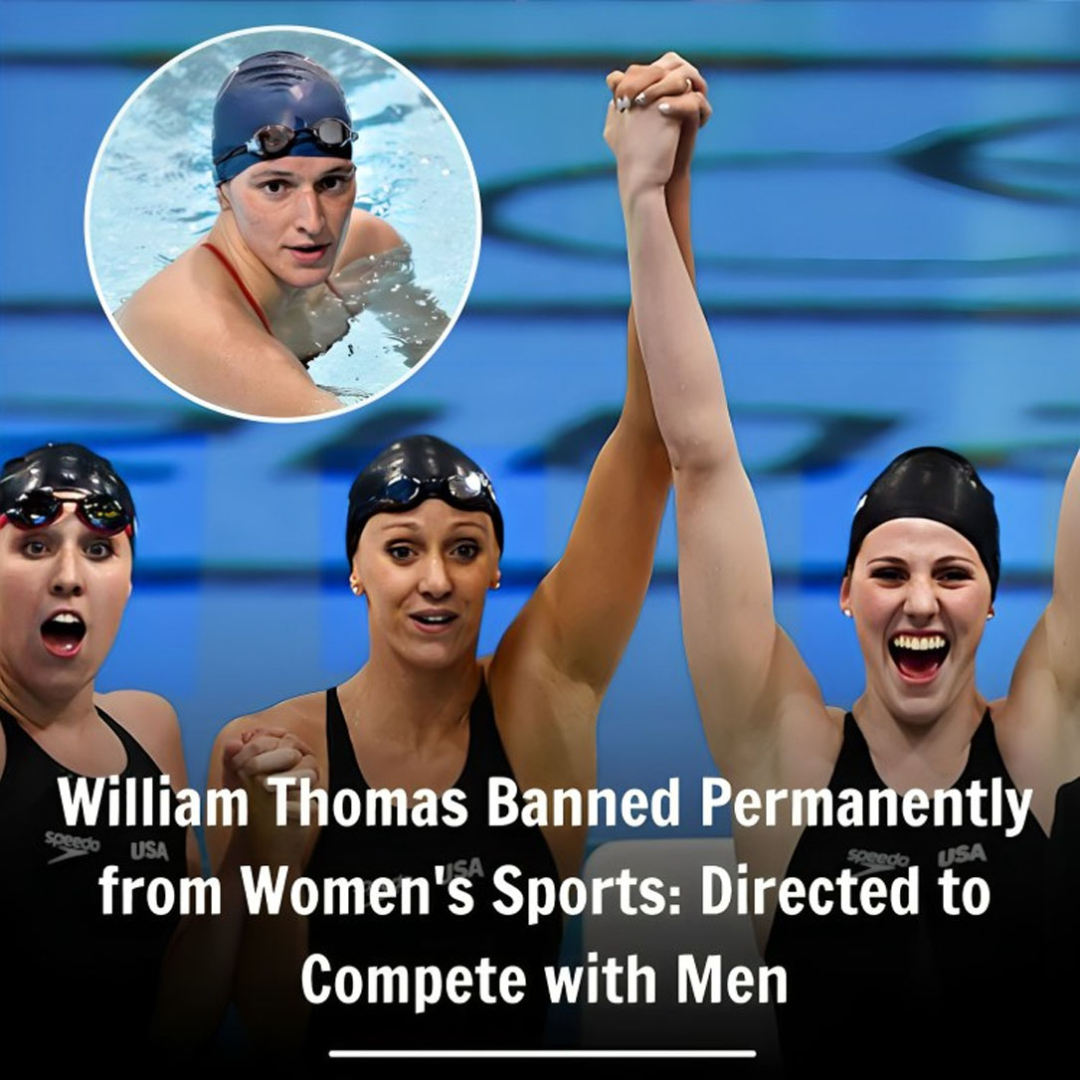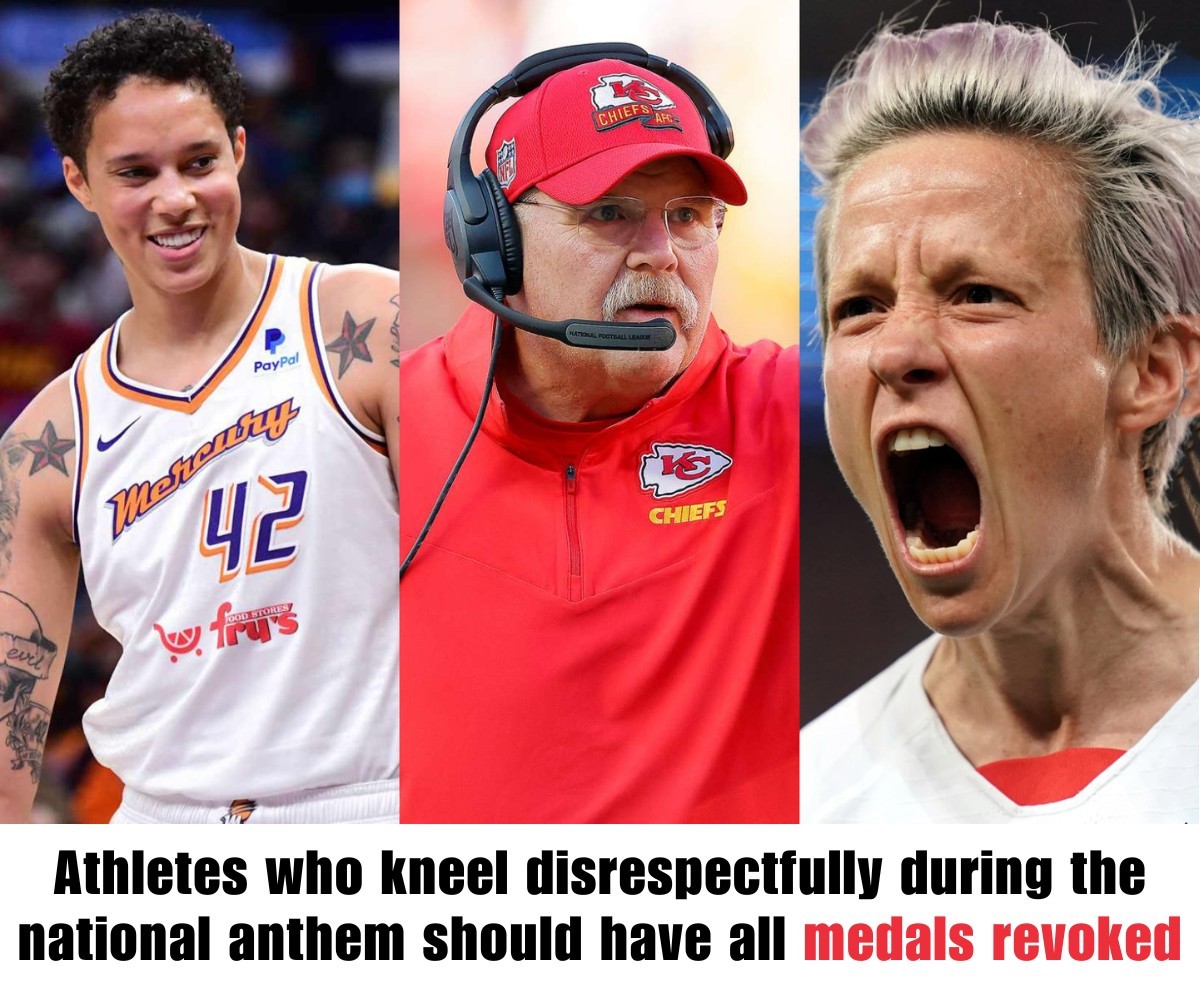William Thomas is barred for life from Womeb’s Sports and is not permitted to compete against men.

In a landmark decision, sports governing bodies have permanently banned swimmer William Thomas from participating in women’s sports. The decision, announced with the directive for Thomas to “swim with men,” has ignited a widespread debate on the inclusion of transgender athletes in competitive sports.
The Controversy
William Thomas, who previously competed in men’s swimming events, began competing in women’s events after transitioning. This sparked a heated debate over fairness, competitive balance, and the rights of transgender athletes. Advocates argue that Thomas should be allowed to compete in accordance with their gender identity, while critics claim that Thomas holds an unfair advantage due to physical attributes developed prior to transitioning.

Official Statement
The governing bodies, including the International Swimming Federation (FINA) and various national swimming associations, released a joint statement: “After careful consideration and extensive review, it has been decided that William Thomas will no longer be allowed to compete in women’s sports. This decision is based on ensuring fairness in competition and maintaining the integrity of women’s sports.”
Reactions
Support and Criticism
The decision has garnered mixed reactions from the public, athletes, and advocacy groups. Supporters of the ban argue that it protects the competitive integrity of women’s sports. Many female athletes have expressed relief, stating that the decision ensures a level playing field.
However, LGBTQ+ advocacy groups and allies of transgender rights have strongly condemned the ban. They argue that it discriminates against transgender athletes and denies them the right to compete according to their gender identity. The decision, they claim, sends a harmful message about inclusivity and acceptance in sports.

Legal and Ethical Concerns
Legal experts are examining the implications of the ban, with some suggesting it may violate anti-discrimination laws and the rights of transgender individuals. Ethical questions have also been raised about the criteria used to determine eligibility and whether they unfairly target transgender athletes.
William Thomas’s Response
William Thomas issued a heartfelt response to the decision, expressing disappointment but also resilience. “I am saddened by this decision, but I remain committed to my sport and my identity,” Thomas said. “I will continue to advocate for the rights of all athletes to compete as their true selves.”
Broader Implications
Impact on Transgender Athletes
This decision could set a precedent for other sports and governing bodies, potentially leading to similar bans across various disciplines. The ruling may discourage transgender athletes from participating in sports due to fear of exclusion and discrimination.
The Future of Women’s Sports
Supporters of the ban argue that it safeguards the future of women’s sports by ensuring fair competition. However, critics warn that it could lead to further marginalization of transgender athletes and undermine efforts to create more inclusive and diverse sporting environments.

Ongoing Debate
The decision to ban William Thomas highlights the ongoing debate over how to balance inclusivity and fairness in sports. Finding a solution that respects the rights of transgender athletes while maintaining competitive equity remains a complex and contentious issue.

Conclusion
The permanent ban on William Thomas from women’s sports is a significant and controversial decision that has sparked a broader discussion about the inclusion of transgender athletes. As the sports world grapples with these issues, it is clear that the conversation around gender, fairness, and competition is far from over. The impact of this decision will likely reverberate across sports, influencing policies and perceptions for years to come.




